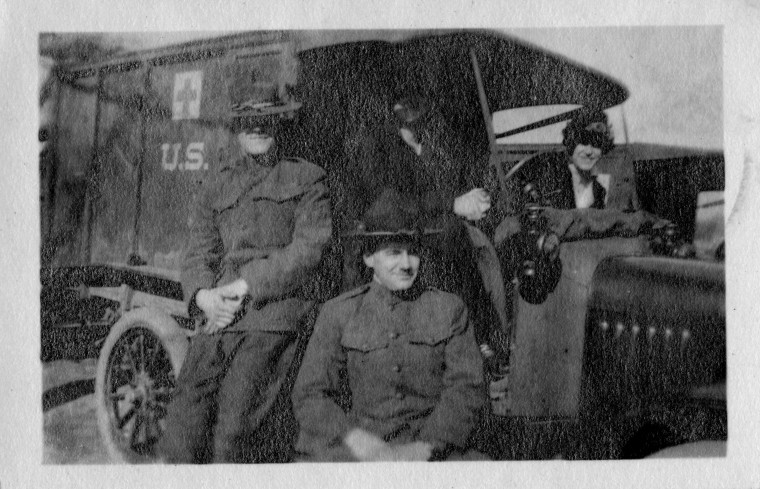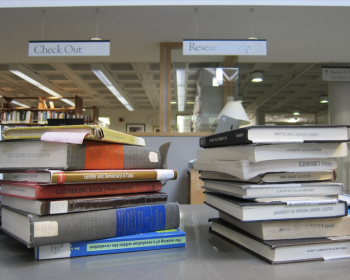From the archives: President’s papers shed light on 1918 influenza
Twenty-five years before he relocated to Portland, Oregon to become the first president (1942-1960) of the newly renamed Lewis & Clark College, Morgan S. Odell, a strict Methodists and pacifist, enlisted into the U.S. Army. Only 23 when he enlisted, he drove with the ambulance service in Italy through the end of the Great War. Stationed in Oné di Fonte thirty miles northwest of Venice, Odell participated in the Battle of Vittorio-Veneto. Serving on the front lines, he saw the ramifications of poison gas, but also illness as the “Spanish flu” pandemic began to take hold both in Europe and on the homefront.
Open gallery

Twenty-five years before he relocated to Portland, Oregon to become the first president (1942-1960) of the newly renamed Lewis & Clark College, Morgan S. Odell, a strict Methodist and pacifist, enlisted into the U.S. Army. Only 23 when he enlisted, he drove with the ambulance service in Italy through the end of the Great War. Stationed in Oné di Fonte thirty miles northwest of Venice, Odell participated in the Battle of Vittorio-Veneto. Serving on the front lines, he saw the ramifications of poison gas, but also illness as the “Spanish flu” pandemic began to take hold both in Europe and on the homefront.
Odell’s new wife, Ruth, lived near his parents in Pasadena California. By late 1918, they were coping with the virus, a severe form of influenza that had spread across the world. In a letter dated November 10th, 1918, Ruth mentions that the schools are still closed and writes that two family friends have died from influenza, adding “I don’t know how much you have heard about the epidemic over here, but it certainly is terrible. There have been thousands of deaths among the soldiers in camps; besides the thousands among civilians.” Ruth continues to detail, “there have been from 50 to 100 deaths a day in Los Angeles for the past two or three weeks.” She reassures her absent spouse that it is not as serious in Pasadena, and concludes that “we are all alright and I don’t expect to get it.”
Odell, writes of vaccinations given to soldiers for typhus but adds that the cost of food in Europe was so high that many were malnourished and more susceptible to influenza. In a letter dated November 30th, 1918, he explains that he has heard of her “work in the emergency hospital,” and that fearing for her health, he “will be glad to hear when that epidemic of influenza has passed.” Ultimately several of Odell’s family members, including Ruth, were infected but all fully recovered.
The Morgan S. Odell papers at Lewis & Clark include hundreds of letters to and from Odell written during the war. These documents detail the experiences of those both on the front and at home as the family coped with the turmoil of global conflict, food shortages, and the influenza epidemic. The Morgan S. Odell papers were used in 2015 as source material for the exhibition, “The Great War 100 Years Later: The College, the Country and the World,” curated by Professor of History, David Campion and several students. Selected documents from the Morgan S. Odell papers have been digitized and are available online at http://digitalcollections.lclark.edu/items/browse?collection=63. A full index of the Morgan S. Odell papers is available here http://archiveswest.orbiscascade.org/ark:/80444/xv09940.
Aubrey R. Watzek Library is located in Watzek on the Undergraduate Campus.
email watzek@lclark.edu
voice 503-768-7270
Aubrey R. Watzek Library
Lewis & Clark
615 S. Palatine Hill Road
Portland OR 97219

